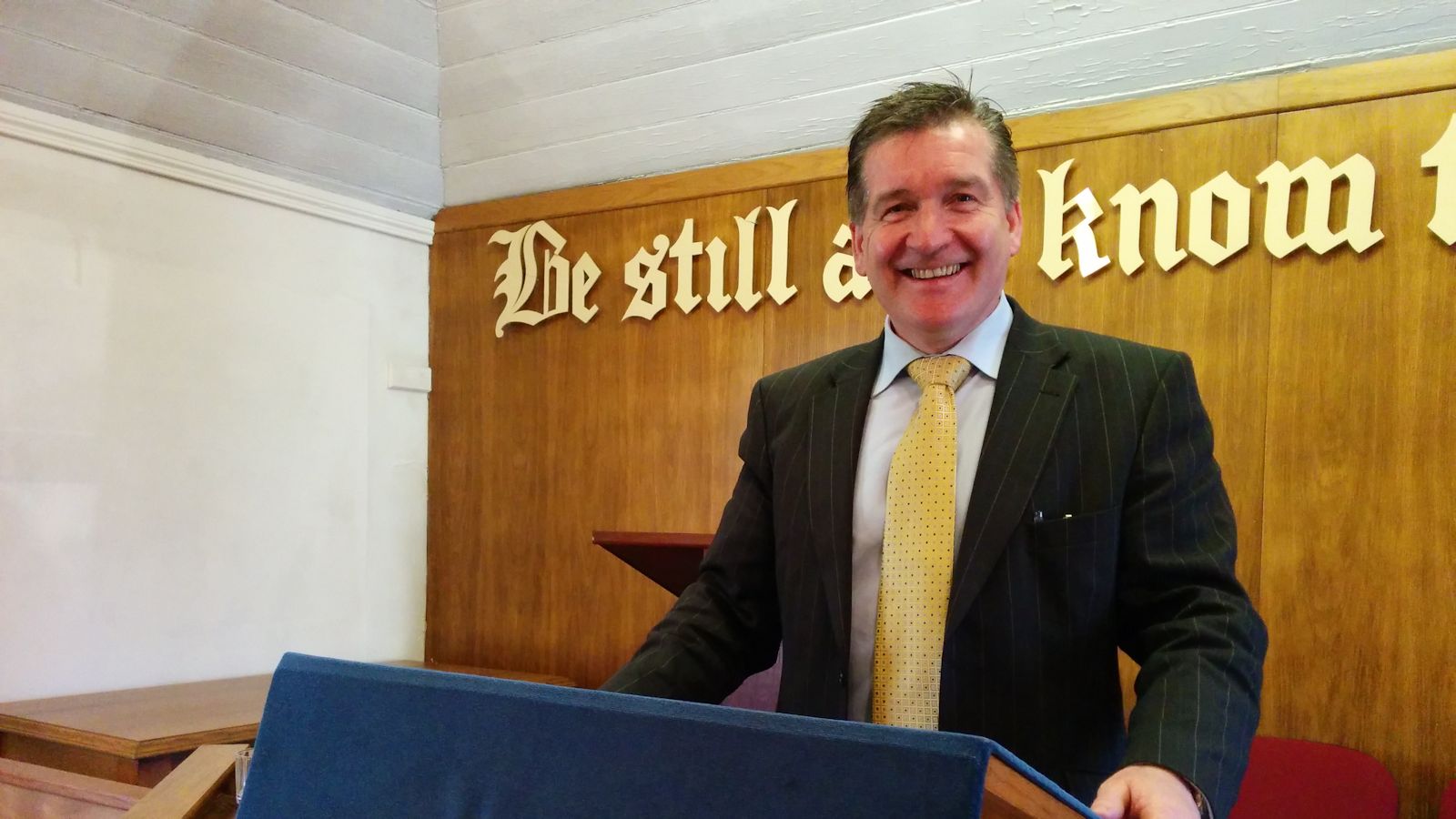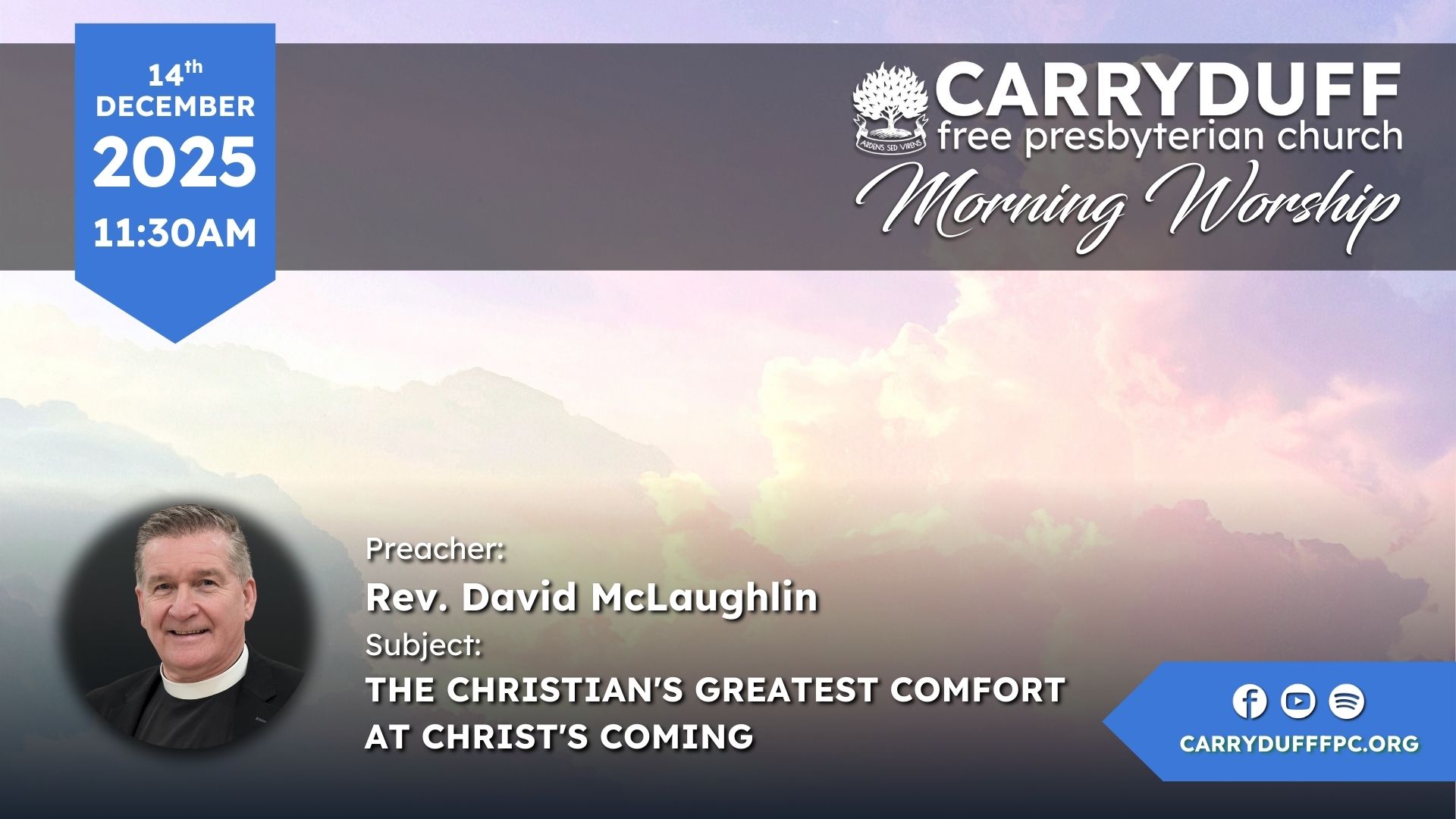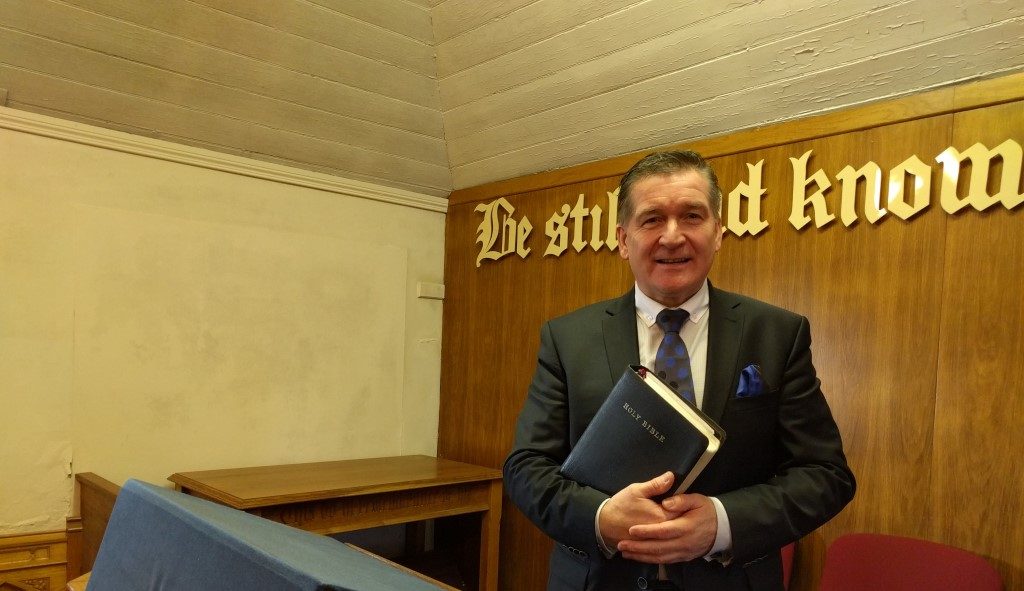Date: SUN 11:30am 28th September 2025
Preacher: Rev. David McLaughlin
Bible Reference: 1 Thessalonians 2:19-20
For what is our hope, or joy, or crown of rejoicing? Are not even ye in the presence of our Lord Jesus Christ at his coming? For ye are our glory and joy.
Sermon Summary: The Pastor’s Joy and Crown at Christ’s Coming (1 Thessalonians 2:13-20)
Scripture Reading: The sermon is based on 1 Thessalonians 2:13-20, with a particular focus on verses 19-20: “For what is our hope, or joy, or crown of rejoicing? Are not even ye in the presence of our Lord Jesus Christ at his coming? For ye are our glory and joy.” The preacher highlights this passage as a reflection of the Apostle Paul’s deep pastoral affection for the Thessalonian believers and his anticipation of their reunion at Christ’s second coming.
Sermon Title: The Pastor’s Joy and Crown at Christ’s Coming
Context and Background:
- The sermon situates the text within the broader narrative of 1 Thessalonians, noting that the church in Thessalonica faced intense persecution, largely instigated by unbelieving Jews, as described in Acts 17:6-7. This opposition, stirred by Satan, led to Paul’s abrupt departure from the city to ensure his safety, as urged by the congregation.
- False accusations were levelled against Paul by his detractors: (1) he fled to save himself, (2) he had no intention of returning, and (3) he did not care about the Thessalonian believers. These lies, orchestrated by the devil, aimed to undermine Paul’s ministry and the faith of the Thessalonians.
- In response, Paul writes this letter to counter these falsehoods, expressing his heartfelt love and longing to return to the Thessalonians, despite being hindered by Satan (verses 17-18).
Main Theme: The sermon focuses on Paul’s deep pastoral bond with the Thessalonian believers, describing them as his “hope, joy, and crown of rejoicing” (verse 19). This reflects the essence of a true pastor’s heart, which is marked by love, care, and anticipation for the spiritual well-being of God’s people, culminating in the joy of presenting them to Christ at His second coming.
Key Points: The preacher outlines three main aspects of Paul’s pastoral heart based on verses 19-20:
- Paul’s Affection for the People of God:
- Paul’s language in verses 19-20 is emotional and rhetorical, posing the question, “What is our hope, or joy, or crown of rejoicing?” and answering, “Are not even ye?” This reveals his deep love and care for the Thessalonian believers, refuting the accusation that he was indifferent to their plight.
- The preacher contrasts love with indifference, arguing that indifference (the “I couldn’t care less” attitude) is the opposite of Christian love. He illustrates this with a real-life example of a woman in New York who ignored the screams of a person being attacked, showing a lack of care. True Christians, in contrast, should exhibit a “couldn’t care more” attitude, especially towards fellow believers.
- Paul’s affection is evident in his longing to see the Thessalonians again (verse 17), describing them as “brethren” (family) and expressing his desire for fellowship. The preacher applies this to the modern church, urging believers to gather for worship out of love and care for one another, rejecting the worldly advice given in some Bible colleges that pastors should remain distant from their congregations to avoid betrayal.
- A true pastor, like Paul, must have a heartfelt, sacrificial love for the flock, being willing to bear their burdens, visit them in times of need, and serve without regard for personal gain or comfort.
- Paul’s Anticipation for the People of God:
- Paul looks forward to the second coming of Christ, when he will be reunited with the Thessalonian believers “in the presence of our Lord Jesus Christ at his coming” (verse 19). This anticipation gives Paul assurance that even if he does not see them again on earth, he will see them in glory.
- The preacher elaborates on the significance of Christ’s return, describing it as:
- A Day of the Saviour’s Return: Citing Acts 1:11, John 14:3, and 1 Thessalonians 4:13-18, the preacher affirms the certainty of Christ’s visible, personal, and bodily return in power and glory. The term “parousia” (coming) underscores this event as a central hope for believers.
- A Day of Special Revelation: Christ will be revealed as the “Lord Jesus Christ,” displaying His deity (Lord), humanity (Jesus), and anointed ministry (Christ) as the eternal Son of God (2 Peter 1:16; Matthew 17:2, 24:27, 30). This revelation will cause the unbelieving world to mourn, as they realise the truth of Christianity.
- A Day of the Saints’ Resurrection: At Christ’s return, the dead in Christ will rise first, their souls reunited with glorified bodies (1 Thessalonians 4:16; 1 Corinthians 15:50-52). This resurrection ensures that believers will receive incorruptible bodies, free from death and decay.
- A Day of Sweet Reunion: Believers, both those who have died and those alive at Christ’s return, will be caught up together to meet the Lord (1 Thessalonians 4:17; 1 John 3:2). This reunion will bring eternal fellowship with Christ and one another, free from sickness, pain, or suffering.
- The preacher encourages the congregation to prepare for this day by confessing their sins and trusting in Christ, ensuring they are ready for His return.
- Paul’s Analyzation of the People of God:
- Paul describes the Thessalonians as his “glory and joy” (verse 20), using metaphorical language to depict them as his “crown of rejoicing.” This represents the fruit of his ministry, which will be fully realised at Christ’s return when he presents the souls he has won to the Lord.
- The preacher applies this to believers today, noting that the only “possession” Christians can bring to heaven is the souls they have helped lead to Christ. This underscores the importance of evangelism and labouring for the salvation of others.
- The sermon challenges the congregation to avoid an “I couldn’t care less” attitude towards the lost and to use their time, talents, and resources to win souls for Christ. The preacher urges active involvement in the local church, prayer, and witnessing, so that believers may present souls to Christ as their “hope, crown, and glory” in eternity.
Application:
- The preacher calls the congregation to reflect on whether their lives—work, education, family, possessions—are being used for God’s glory and the salvation of souls.
- He encourages a caring, engaged attitude within the church, rejecting indifference and embracing a deep love for one another and the lost.
- The ultimate goal is to present souls to Christ at His coming, where they will be the believer’s “crown of rejoicing” and evidence of God’s grace at work.
Conclusion: The sermon concludes with a prayer that the message will bless the congregation’s hearts, urging them to emulate Paul’s pastoral love, anticipate Christ’s return, and labour to bring souls to heaven. The preacher expresses his personal commitment to the congregation, sharing their burdens and striving to be a faithful pastor, with the hope of seeing them in glory as his “joy and crown” at Christ’s coming.
Subscribe to the podcast here:
Spotify Podcasts | Apple Podcasts | Pocket Casts
Email | RSS | more information here







